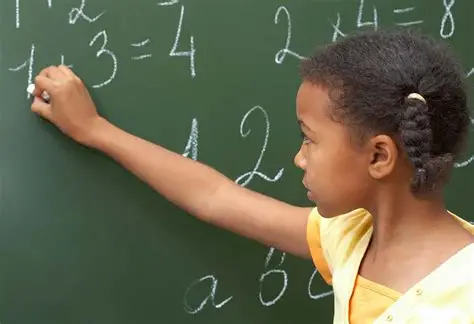Dispelling Math Phobia

Math Phobia in South Africa: Breaking the Cycle of Fear and Failure
Math phobia—the intense fear or anxiety associated with learning mathematics—is one of the most persistent and damaging barriers to academic success in South Africa today. For thousands of learners across the country, just the mention of mathematics triggers a sense of dread, mental block, or even panic. But this fear is not a natural response to the subject itself. Rather, it is a deeply rooted psychological and historical issue—one that demands urgent attention and healing.
A Legacy of Exclusion
To understand the origins of math phobia in South Africa, we must look back at our past. During apartheid, education for Black South Africans was deliberately engineered to exclude them from critical, empowering subjects like mathematics and science. The Bantu Education Act of 1953 made it clear: African children were to be prepared for lives of manual labour, not leadership or innovation. Dr. Hendrik Verwoerd, the chief architect of apartheid, infamously declared:
“There is no place for the Bantu in the European community above the level of certain forms of labour.”
As a result, generations of Black learners were systematically denied access to the mathematical tools required for upward mobility. Even after apartheid officially ended, the psychological residue of exclusion lingers—often passed down from parents to children, consciously or unconsciously.
The Myth of Inherent Difficulty
Many South African learners perceive mathematics as inherently difficult, something only a few “gifted” individuals can master. But this perception is not based in truth. Mathematics, like any language or skill, requires practice, curiosity, and support. The issue is not that the subject is impossible, but that it has been taught, framed, and feared in ways that make it appear inaccessible. In this way, math phobia becomes a socially constructed fear, not a rational assessment of ability.
The Role of Adults in Shaping Attitudes
Adults play a significant role—often unintentionally—in reinforcing math phobia. Statements like “I was never good at math” or “I hate math” are casually uttered in households and staff rooms across the country. These off-hand remarks, especially when made by parents or teachers, send a powerful message to children: that it’s normal—even acceptable—to fear or avoid mathematics. This mindset primes children to expect failure, which then becomes a self-fulfilling prophecy. Learners internalise the idea that they cannot succeed in math, and so they disengage, underperform, and confirm the very fear that was planted in them.
Breaking the Cycle: What Can Be Done?
To tackle math phobia in South Africa, we need multi-layered, culturally sensitive, and practical solutions:
- Math Mindset Interventions: Introduce programs in schools that actively work to shift learners’ attitudes toward math. Concepts like growth mindset and productive struggle should be taught alongside the curriculum.
- Role Models and Representation: Highlight successful African mathematicians, engineers, and scientists. When learners see people who look like them succeeding in math, it builds belief.
- Parent and Teacher Training: Equip adults with the tools to speak positively about math and support learners without projecting their own fears or failures.
- Real-Life Relevance: Show learners how math connects to real life—budgeting, building, farming, technology, and even social media algorithms. When math feels useful, it feels doable.
- Math Clubs and Safe Spaces: Create non-judgmental, engaging spaces where learners can explore math creatively—through games, puzzles, storytelling, and competitions.
- Catch-Up and Support Programs: Implement after-school and holiday programs that address gaps without shame, providing peer and mentor-based learning environments.
Math phobia is not a life sentence. It is a learned fear—and what is learned can be unlearned. In a country striving to produce tomorrow’s innovators, engineers, and data scientists, we cannot afford to let fear stand in the way of potential. By confronting the roots of math phobia with compassion, courage, and cultural awareness, South Africa can empower every child to say with confidence, “I can do this.”
Would you
